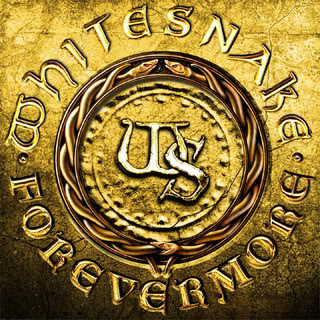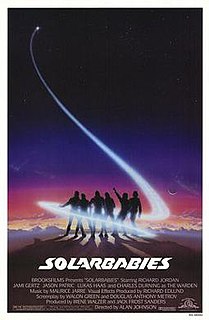
William "Smokey" Robinson Jr. is an American singer, songwriter, record producer, and former record executive. Robinson was the founder and frontman of the Motown vocal group the Miracles, for which he was also chief songwriter and producer. Robinson led the group from its 1955 origins as "the Five Chimes" until 1972 when he announced a retirement from the group to focus on his role as Motown's vice president.

The Miracles were an American rhythm and blues vocal group that was the first successful recording act for Berry Gordy's Motown Records, and one of the most important and influential groups in pop, rock and roll, and R&B music history. Formed in 1955 by Smokey Robinson, Warren "Pete" Moore, and Ronnie White, the group started off as the Five Chimes, changing their name to the Matadors two years later. The group then settled on the Miracles after the inclusion of Claudette Robinson in 1958. The most notable Miracles line-up included the Robinsons, Moore, White, Bobby Rogers and Marv Tarplin. After a failed audition with Brunswick Records, the group began working with songwriter Berry Gordy, who helped to produce their first records for the End and Chess labels before establishing Tamla Records in 1959 and signing the Miracles as its first act. The group eventually scored the label's first million-selling hit record with the 1960 Grammy Hall of Fame smash, "Shop Around", and further established themselves as one of Motown's top acts with the hit singles "You've Really Got a Hold on Me", "What's So Good About Goodbye", "Way Over There", "I'll Try Something New", "Mickey's Monkey", "Going to a Go-Go", "(Come 'Round Here) I'm the One You Need", "Just A Mirage", "If You Can Want", "More Love", "I Don't Blame You at All", "Ooo Baby Baby", The multi-award-winning "The Tracks of My Tears", "Special Occasion", "I Second That Emotion", "Baby Baby Don't Cry", the number-one Pop smashes "The Tears of a Clown" and "Love Machine", "Do It Baby", and "My Girl Has Gone", among numerous other hits.
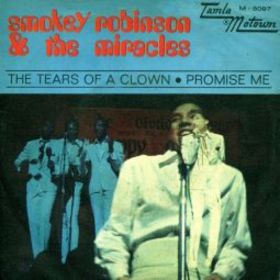
"The Tears of a Clown" is a song written by Hank Cosby, Smokey Robinson, and Stevie Wonder and originally recorded by Smokey Robinson & the Miracles for the Tamla Records label subsidiary of Motown, first appearing on the 1967 album Make It Happen. It was re-released in the United Kingdom as a single in July 1970, and it became a #1 hit on the UK Singles Chart for the week ending 12 September 1970. Subsequently, Motown released "The Tears of a Clown" as a single in the United States as well, where it quickly became a #1 hit on both the Billboard Hot 100 and R&B Singles charts.
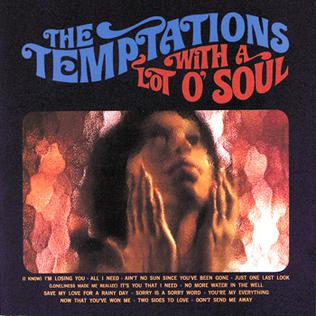
The Temptations with a Lot o' Soul is the fifth studio album by The Temptations for the Gordy (Motown) label released in 1967. Featuring four hit singles, With a Lot o' Soul is the most successful Temptations album from their "classic 5" era, during which David Ruffin, Eddie Kendricks, Paul Williams, Melvin Franklin, and Otis Williams constituted the Temptations' lineup.

Love Child is the fifteenth studio album released by Diana Ross & the Supremes for the Motown label in 1968. The LP was the group's first studio LP not to include any songs written or produced by any member of the Holland–Dozier–Holland production team, who had previously overseen most of the Supremes' releases.
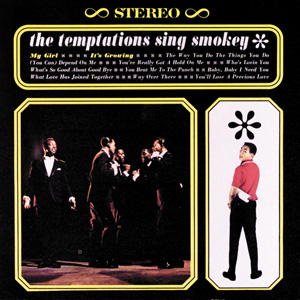
The Temptations Sing Smokey is the second studio album by The Temptations for the Motown label, released on the Gordy Records subsidiary in 1965. As its name implies, it is composed entirely of songs written and produced by Smokey Robinson, and several other members of the Miracles as well.
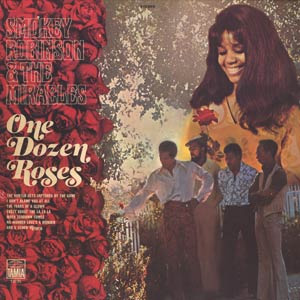
One Dozen Roses is a 1971 album by Smokey Robinson & The Miracles, issued on Motown Records' Tamla label. The penultimate album before lead singer Smokey Robinson departed the group for a solo career, One Dozen Roses features the Top 20 Billboard Hot 100 hit single "I Don't Blame You at All". Also included is the group's number-one smash hit "The Tears of a Clown", which was also made available through the reissue of the 1967 Miracles LP Make It Happen as The Tears of a Clown. Both of these songs were also huge hits in England, reaching #11 and #1 respectively.
"The One Who Really Loves You" is a single recorded by Mary Wells on the Motown label in 1962. It was written and composed by Smokey Robinson of The Miracles and peaked at number eight on the Billboard Hot 100 chart and number two on the Billboard R&B chart.
"Baby, Baby Don't Cry", released in December 1968, is a single recorded by The Miracles for Motown Records' Tamla label. The composition was written by Miracles lead singer Smokey Robinson, Motown staff writers Al Cleveland and Terry Johnson, a former member of The Flamingos. Robinson, Johnson, and Miracles member Warren "Pete" Moore were the song's producers.
"The Love I Saw in You Was Just a Mirage" is a 1967 song recorded by the American R&B group The Miracles on Motown Records' Tamla label. Written by Miracles members Smokey Robinson and Marv Tarplin and produced by Robinson, it is noted for being the first single to bill the group as "Smokey Robinson" & the Miracles, a billing already present on the group's albums by this time.
"I Don't Blame You At All" was a 1971 R&B song by The Miracles on Motown Records' Tamla label. It was composed by Miracles lead singer, William "Smokey" Robinson,and produced by Robinson and Terry "Buzzy" Johnson, and was taken from their album, One Dozen Roses. This song was actually the follow-up hit to their #1 smash, "The Tears of a Clown", and reached the Top 20 of the Billboard Hot 100, charting at #18, and the Top 10 of the Billboard R&B chart, peaking at #7. It was also a Top 20 hit in the UK, reaching #11 on the British charts that year. It is also noted as the group's last Top 20 pop hit before Smokey Robinson's departure from The Miracles the following year, and was performed by the group on Dick Clark's American Bandstand on an episode dated July 10, 1971.
"One Heartbeat" is the second single released by Smokey Robinson from his 1987 album One Heartbeat. The song reached No. 10 on the Billboard Hot 100, No. 3 on the R&B singles chart, and No. 2 on the Adult Contemporary chart.

"Happy" is a song recorded by Michael Jackson for the Motown label in 1973. The song featured on Jackson's album Music & Me. Its full title is "Happy ", although it was never featured in the film or the soundtrack for Lady Sings the Blues. The song was first released as a single by Bobby Darin in November 23, 1972, peaking #67 on the Billboard Hot 100, his last single to hit the chart. Michael Jackson's single was first released in Australia, backed by "In Our Small Way".
Flying High Together is an album by Smokey Robinson and the Miracles on Motown Records' Tamla label, released in 1972. It is noted as The Miracles' last studio album with original lead singer Smokey Robinson, who retired from the act to concentrate on his duties as Vice President of The Motown Record Corporation. The album charted at #46 on the Billboard Pop Album chart, and featured two singles: the appropriately named "We've Come Too Far to End It Now", which matched the parent album's chart position on the Billboard singles chart, charting at #46, and reached the Top 10 of the Billboard R&B singles chart, charting at #9, and "I Can't Stand to See You Cry", which charted at #45 Pop, and #21 R&B.

Note: For the song, see "What Love Has Joined Together"
"(You Can) Depend on Me", was a 1959 song by Motown Records group The Miracles, which also appeared on the group's first album, Hi... We're The Miracles. It also appeared as the "B" side of the group's hit single, Way Over There. It was written by Motown Records' President and founder Berry Gordy and Miracles member William "Smokey" Robinson. While not charting nationally, this song was a very popular regional hit tune in many areas of the country, so much so, in fact, that it was included on the group's first greatest hits album, Greatest Hits from the Beginning, and Smokey still sings it, by request, in his live shows today.

"Yester Love" was a 1968 song by Motown Records R&B group The Miracles on its Tamla subsidiary label. It was recorded on December 18, 1967, and was included on the group's album, Special Occasion.

Smokey Robinson & the Miracles LIVE! (TS289) is a 1969 album by R&B group The Miracles. Issued on Motown's Tamla label, it is the second of three live albums the Miracles recorded during their career. The album was recorded in 1968 at Detroit's famous Roostertail Restaurant, a popular venue where Motown artists appeared during the 1960s and 1970s. Released January 6, 1969, it charted at #71 on the Billboard Pop Album Chart and peaked at #7 on the Billboard R&B Album Chart.
"A Love She Can Count On" was a 1963 hit single by Motown Records R&B group The Miracles, issued on that label's Tamla subsidiary label. It was taken from their album The Fabulous Miracles, and was the follow-up to the group's million-selling Grammy Hall of Fame inducted tune, "You've Really Got A Hold On Me".
The first of three singles released by The Miracles that year, this song was a Billboard Top 40 Pop Hit, peaking at #31, and missed the Top 20 of its R&B chart by only one position, peaking at # 21.
Written and produced by Miracles lead singer Smokey Robinson, "A Love She Can Count On" features the same bluesy sound and feel of "Hold On Me", featuring the gospel-inspired harmonies of Miracles members Bobby Rogers, Claudette Robinson, Pete Moore, and Ronnie White, and, like that previous song, begins with the guitar of Miracles member Marv Tarplin. However, that is where the similarities end; unlike the previous hit, with its theme of being in love with someone you don't like, "A Love She Can Count On" has as its theme undying love and loyalty, with Robinson, as the song's narrator, promising eternal love and devotion:

The Michael Jackson Mix is a compilation album by American recording artist Michael Jackson, released in 1987. Available as a double LP, double cassette and double CD, the album contains 40 songs from Jackson's Motown career – solo and with The Jackson 5 – edited together in four separate megamixes: "Love Mix 1" and "Love Mix 2" on the first LP, cassette and CD, and "Dance Mix 1" and "Dance Mix 2" on the second LP, cassette and CD.

